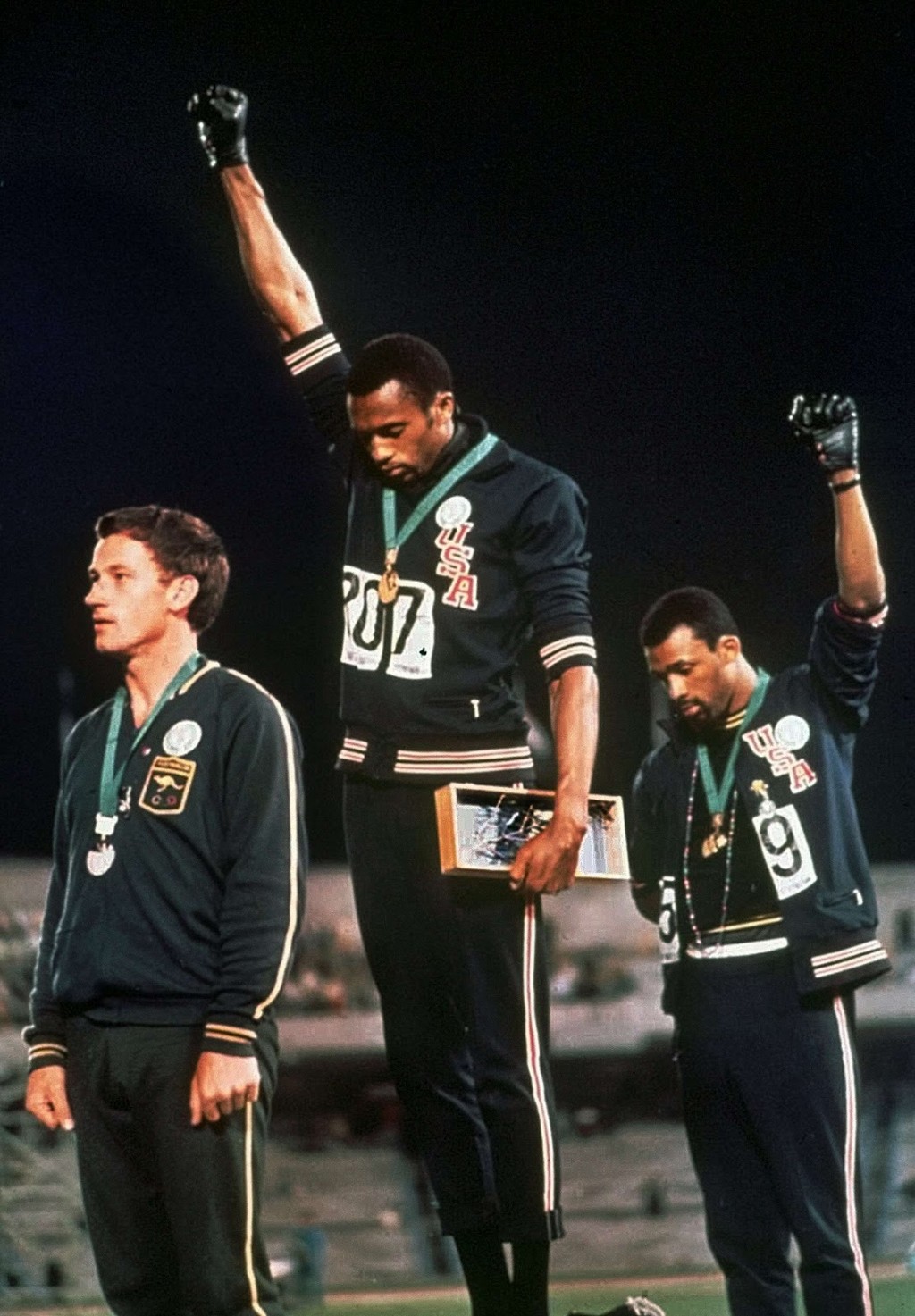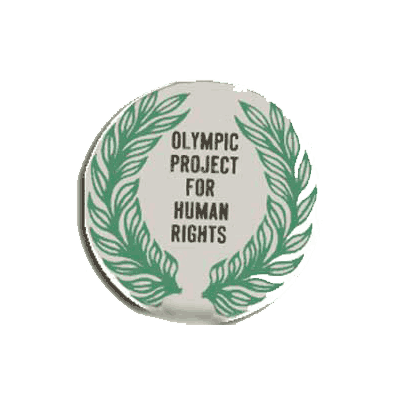Now you may or may not have seen the photograph above before.
In case you haven't, it shows the three medal finishers of the men's 200m sprint final at the 1968 Summer Olympics, held in Mexico. Two of them are: gold medallist and then-world-record-breaker Tommie Smith, and third-place finisher John Carlos, in their iconic poses of rebellion against racial segregation and discrimination.
(They were later on banned from competing in the Olympics for life, by the way.)
That year was one of great tragedy for the civil rights movement in the US: Martin Luther King, its charismatic leader, and Senator Robert F. Kennedy (brother of former US president John F. Kennedy) who made great strides in championing their cause, were assassinated mere months apart from each other (in April and June respectively) prior to the Games in October. In taking a stand for the movement, Carlos and Smith did a risky but brave thing at the awards ceremony:
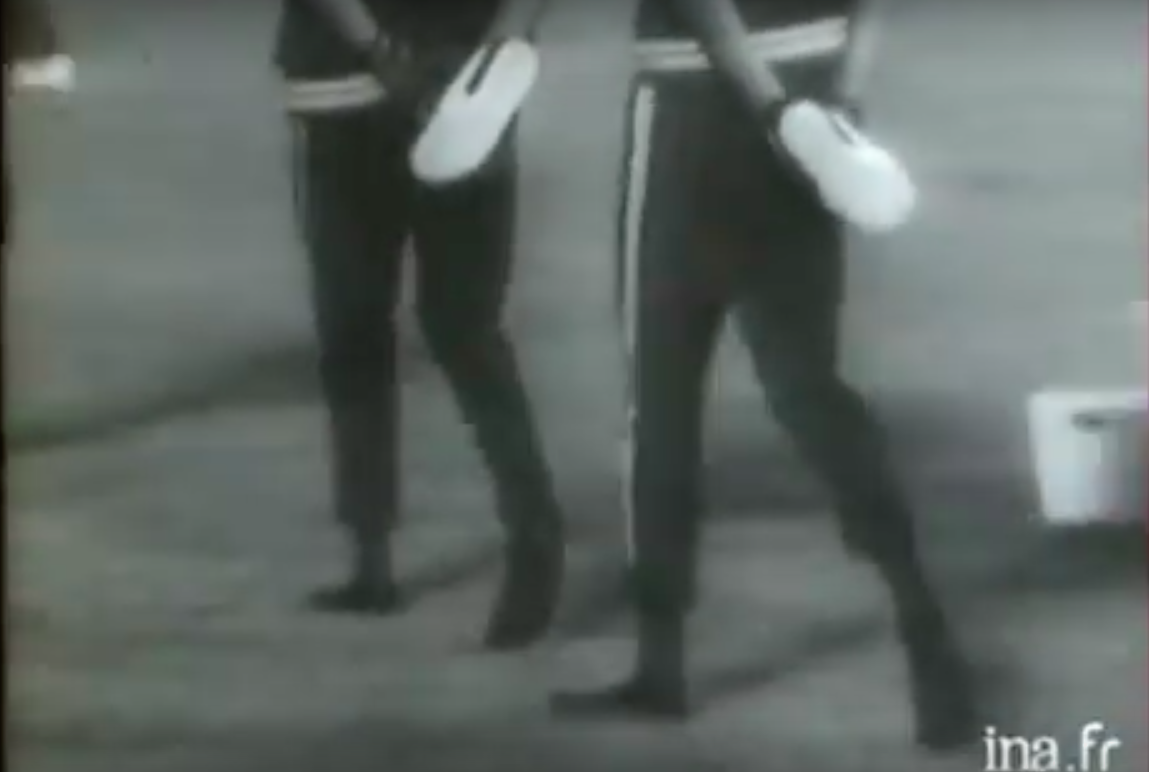 Screenshot from YouTube video
Screenshot from YouTube video
- they stepped up to the podium to receive their medals wearing black socks, shoes in hand, a symbol of the poverty people of colour faced at the time;
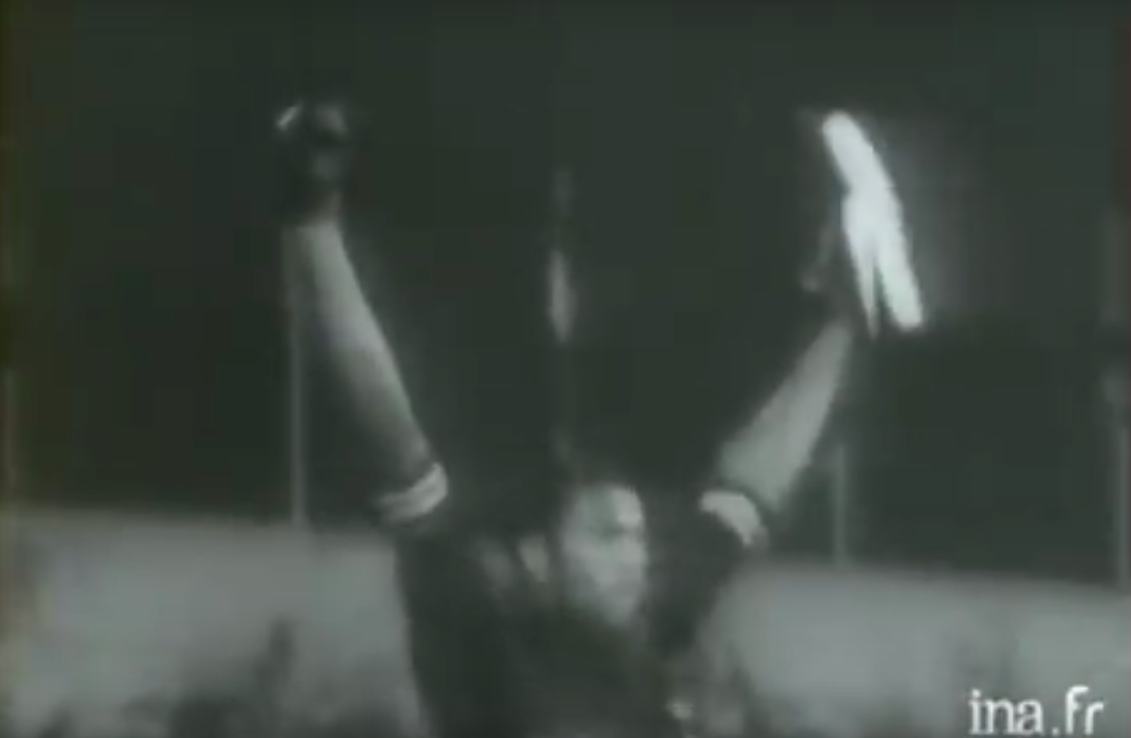 Screenshot from YouTube video
Screenshot from YouTube video
- they each wore a black glove that represented the Black Panther Party, one of the first US organisations that championed equal rights for ethnic minorities, although they were willing to use force to achieve their aim;
- and they also wore this badge, a representative of the athletes' movement for equality.
But this story isn't about these two brave men. It's actually about the third guy in the picture — that seemingly insignificant white dude standing in front of them on the second place pedestal: Australian Peter Norman.
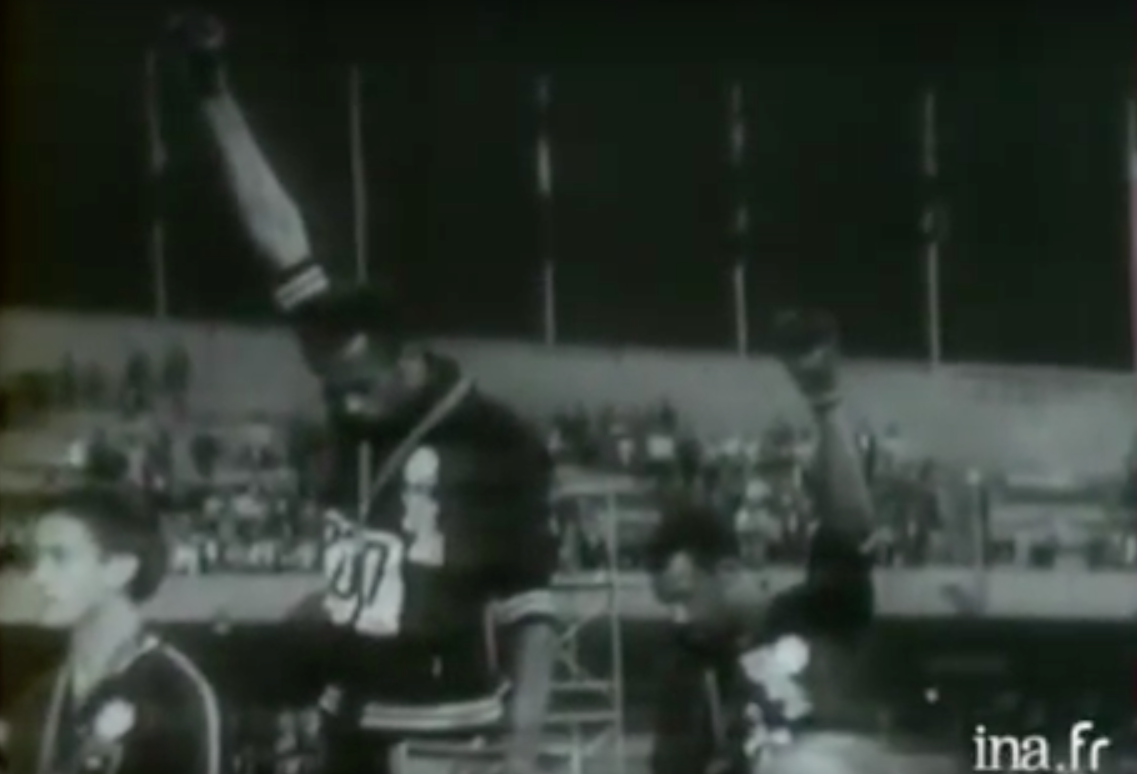 Screenshot from YouTube video
Screenshot from YouTube video
It does admittedly at first look like the dude was trying to distance himself from his fellow medal winners, until you check out the screenshot above from an old French news video of the trio at the awards ceremony. If you look carefully at Norman, you'll notice he was also wearing the Olympic Project for Human Rights badge, alongside Smith and Carlos.
Watch the video of scenes from the ceremony here:
" width="760" height="570" frameborder="0" allowfullscreen="allowfullscreen">
Italian writer Riccardo Gazzaniga wrote a moving and poignant account of Norman's story, which was last week shared on an otherwise unknown Italian site called Griot Magazine.
And since so many of us around the world didn't know about his story before, we're really glad the folks at Griot chose to translate his account (written originally in Italian) and share it on the ninth anniversary of Norman's death of a heart attack in 2006.
Because by Saturday afternoon (exactly one week since it was published), some 98,000 people have shared the article on Facebook:
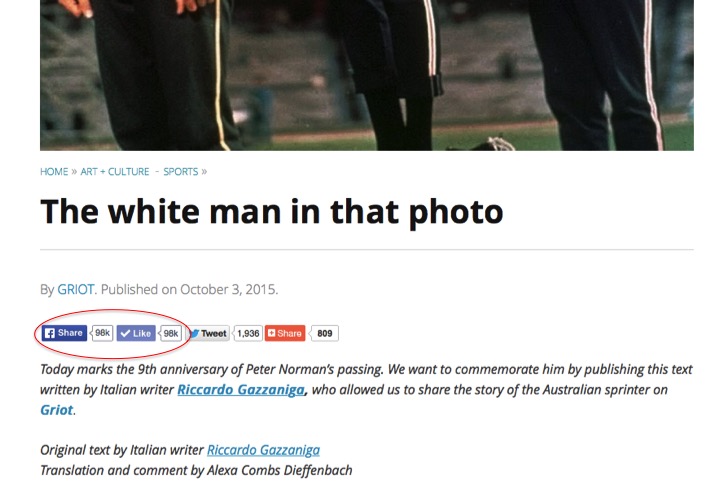 Screenshot from Griot Magazine
Screenshot from Griot Magazine
So many people are reading and sharing it that it's been crashing the site:
Ok,'>
Posted by Riccardo Gazzaniga on Thursday, 8 October 2015
(Translation from the original author: Okay, the result is (once again) unexpected and impressive: 24,000 shares on Facebook and 400 tweets, from all over the world. Was right of Johanne Affricot to ask me to take (my story about) him onto Griotmag.com thinking that would be okay even in English. Thanks to you and to the work of Alexa Combs Dieffenbach who translated it for me.
And, of course, a thought to Peter Norman, because the main character of all this is always and only him.)
We'll let you read most of the details there (and you should; it's immensely moving — there was even a documentary made about that evening, and about Norman's role in it), but here's the gist:
- Before the ceremony, Smith and Carlos shared their plans with Norman, who agreed to support them in their stand against discrimination and apartheid (which, by the way, was practiced strictly in Australia at the time too).
- After the two Americans were banned from competing in the Olympics for life, Norman was left out of the 1972 Australian Olympic team of sprinters (and quit athletics afterward) despite running Olympic qualifying times for the 100m event five times and another 13 for the 200m event. He was also shunned by the media and his countrymen despite his historic national record — which still stands today, by the way.
- He was also sidelined from involvement in the 2000 Games hosted in Sydney. When the American Olympic Committee learned of this, though, they invited him to join them.
- At his funeral in 2006, Smith and Carlos were among Norman's pallbearers at his funeral, and gave eulogies for him too.
- And it was only six years later that the Australian Parliament passed a motion of an official apology to him. Yep, after he died without honour or recognition for his impactful contributions to athletics (or indeed, humanity), from his own countrymen.
Believe us, read it. It'll change any previous impressions you ever had about this photo.
Top photo from Griot Magazine.
If you like what you read, follow us on Facebook and Twitter to get the latest updates.
